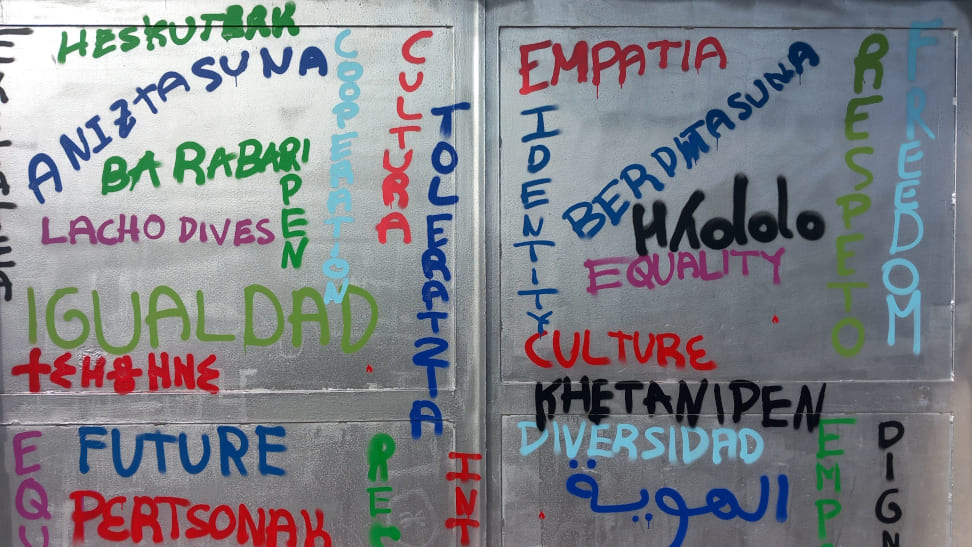CULTURE
FOR SOCIAL TRANSFORMATION
Today’s challenges – the climate crisis, armed conflicts, the rollback of fundamental rights, increasing inequalities, pandemics, uncontrolled urbanisation and unsustainable development models – force us to recall the first article of the Universal Declaration on Cultural Diversity (UNESCO, 2001):
Cultural diversity: the common heritage of humanity. Culture takes diverse forms across time and space. This diversity is embodied in the uniqueness and plurality of the identities of the groups and societies making up humankind. As a source of exchange, innovation and creativity, cultural diversity is as necessary for humankind as biodiversity is for nature. In this sense, it is the common heritage of humanity and should be recognized and affirmed for the benefit of present and future generations.
In the Culture for Social Transformation programme we work in the following areas:
CULTURE AND SUSTAINABLE DEVELOPMENT
We recognize the new impetus given to the role of culture for sustainable development, peace and stability, as a driver of resilience, social inclusion and cohesion, environmental protection and sustainable and inclusive growth, and a promoter of people-centred and context-specific development, which lays the foundation for multicultural human societies. Integrating culture and its associated rights into development strategies is fundamental to the localisation of the 2030 Agenda and progress towards the achievement of the Sustainable Development Goals.


CULTURAL RIGHTS
Sustainable development cannot be achieved without integrating full respect for human rights, and thus cultural rights. Cultural rights protect the rights of all people to develop and express their humanity, their worldview and the meaning they give to their existence and their development through, inter alia, values, beliefs, convictions, languages, knowledge and arts, institutions and ways of life. They also protect access to cultural heritage and to the resources that enable these processes of identification and development to take place.
ARTISTIC AND CULTURAL EDUCATION
Art is key to forming generations capable of reinventing the world they have inherited. It reinforces the vitality of cultural identities and promotes relationships with other communities, thus contributing to the construction of a common heritage. It helps to form tolerant and dynamic citizens in our globalised world. We promote the GizARTE network, which brings together educators, creators and cultural managers linked to artistic and cultural education programmes and activities for social transformation.


CULTURAL HERITAGE
We work to recognise, promote and disseminate those elements of identity that make up the tangible and intangible cultural heritage through the organisation of reflection and awareness days, specialised technical advice and participation in local and international meetings. We promote ONDARE UP! Young people, heritage and diversities, a programme aimed at young people to encourage their involvement in the protection, safeguarding, research and communication of heritage and cultural diversity.
RELATED NEWS
-
Encuentro e intercambio “Jóvenes pensando: Guerra y Paz”
La compañía de teatro Utopian (Getxo), con el apoyo de UN Etxea – Asociación del País Vasco para la UNESCO,
-
Crear comunidad desde la diversidad y el arte
María, Leire, Javier, Josean, Adriana, Mavi, Olfa, Maite, Cruz, Bego, Marina, Simón, Helena, Carmen, Fely, Malvina, Juanra, Marian o Ainara
-
La música chaabi, bertsolaritza y el ndolé en Ondare Up! Otxarkoaga
Un curso escolar más UN Etxea y el Centro Formativo de Oxarkoaga aúnan fuerzas para fomentar la convivencia y la




